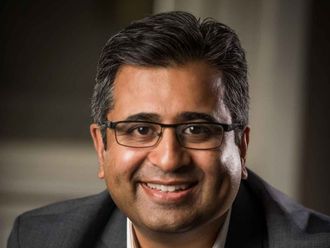Capital markets in the GCC would appear to have been impacted by the current regional political and economic unrest with company valuations discounted compared to prior levels, increasing finance costs and falling investor risk appetite being a feature of the first quarter of 2011.
PricewaterhouseCoopers (PwC), the leading international professional services organisation, believes that recent political and economic upheaval in the GCC region has impacted negatively investor confidence with a number of companies reassessing their initial public offering (IPO) plans and either deferring or shelving future IPOs.
The first quarter of 2011 has been very disappointing so far for IPOs in the region with no transactions yet to be reported on any of the GCC exchanges compared to the three offerings in the last quarter of 2010 which raised approximately $1 billion (Dh3.67 billion).
The equity markets in the GCC region have witnessed both depressed volumes and market value erosion which were at their lowest levels in February this year. This compares to the Dh420 million of fresh equity raised through six IPOs in the first quarter of 2010.
GCC equity markets
Increased economic activity, improvements in investor confidence and revival of the GCC equity markets are fundamental to the return of IPOs on the GCC exchanges. There are some positive indicators of economic revival although the political unrest we have seen in parts of the region is a growing market concern for both regional and international investors, which as a result has impacted regional markets.
In Europe, there were 94 equity offerings completed in the first three months of 2011, raising just over $4 billion, as compared to the 129 offerings in the fourth quarter of 2010 which generated approximately $14 billion, with London hosting the majority share of IPOs.
A number of GCC based companies have shown interest in the international markets with Kuwait Energy Company (KEC) and Topaz Energy and Marine announcing their intent to list their shares on the London Main Market. Unfortunately, both companies have since announced deferral of their listing plans, being examples of difficulties faced by regional companies looking to raise equity on international markets.
We are seeing an increasing trend in local companies seeking international listings to be able to access international capital. The deferral of both Topaz and KEC are clear evidence of the difficulties regional companies are facing in attracting international capital.
By contrast to the equity markets, the regional public debt markets have continued to be reasonably robust in the first quarter of 2011 with some sizeable issuances placed including, amongst others, the Dubai Electricity and Water Authority's $2 billion placement, International Petroleum Investment Company's $2.5 billion offering and Qatar Telecom's $1.5 billion issuance. The size of these and other offerings is evidence that both regional and international appetite for fixed income investments remains strong albeit seemingly primarily for state owned entities.
Uncertainty
Whilst volumes remain strong, spreads have widened in the first quarter of 2011, which is an indicator that regional debt prices have moved upwards which may, in part, be a factor of the recent regional unrest and the uncertainty that has caused.
"The bond and sukuk markets appear to continue to be reasonably strong although we have recently seen some issuances deferred. Issuers coming to the market in the first quarter of 2011 have generally paid a higher price for their debt than may have been the case in the fourth quarter of 2010.
However, with the continuing demand for investment spend, particularly infrastructure, we would expect to see the public debt markets continue to be a viable source of funding for many issuers. Those issuers who have the flexibility as to when to issue are likely to see benefits in pricing."
The author is Partner and Head of Capital Markets Middle East, PwC












